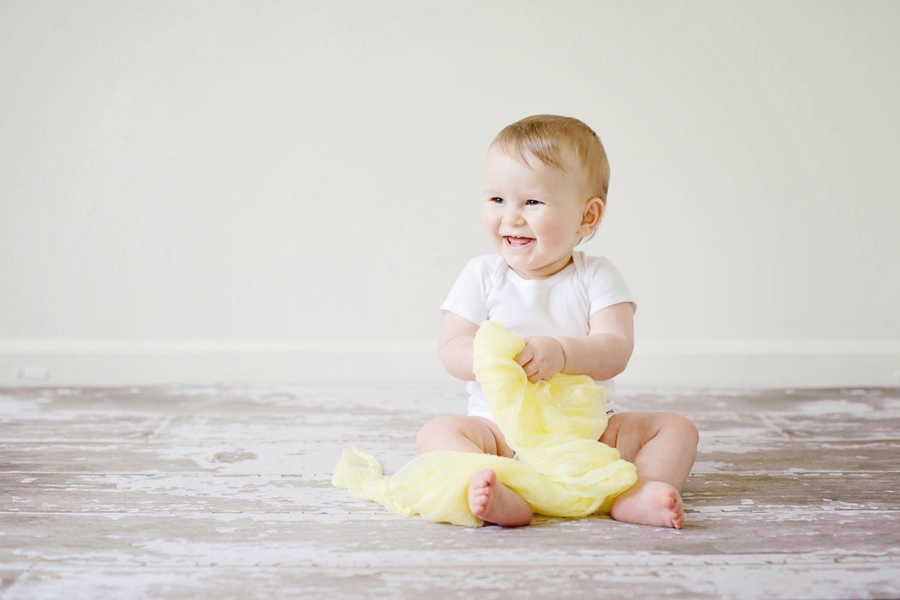
Six Rules Every Mom Should Follow For Their Baby’s Personal Hygiene
28 Feb 2020 | 4 min Read
Vidya Kanekar
Author | 27 Articles
Having a baby can be quite an overwhelming experience. You suddenly take on the emotional weight of being solely responsible for a tiny, fragile human who is simply blindly dependent on you! And while you may have been brimming with joy as you entered parenthood, it is only natural for this euphoria to gradually blot out over the days with so many new-parent worries and anxieties. After all, who doesn’t feel an instant rush of protectiveness when they look at a baby’s tiny arms, small little wobbly head and feeble features? It’s just typical parental instinct!
But for a lot of new parents, the fragility of their babies may be a little intimidating. I mean, don’t we all just wish we could safeguard our baby in a safe sanitized bubble? While this may not be realistically possible, there are a few other things you could do to keep your baby illness-free and safe from pesky disease-causing germs.
Essential Hygiene Tips for Your Baby
During the first few years, keeping your baby healthy can be tough. Your baby’s immune system is still underdeveloped and, therefore, germs and viruses are always a lurking concern. But by adopting these simple hygiene practices when you have a baby, you can shrug off many of these concerns:
1. Wash Your Hands
Whether you are a first-time parent or an experienced mommy, you can’t forget this golden rule – wash your hands before handling your infant. Babies are incredibly susceptible to infection and disease and, therefore, it is imperative to look after self-hygiene wash your hands frequently when you are around them.
2. Bathe and Clean Your Baby
Babies less than a year old don’t need to be given a bath every day. But for hygiene and sanitation purposes, you should bathe them at least three times a week. Use a mild and toxin-free soap to wash their body. You can use a cotton ball with saline solution to clean the sides of their eyes, their outer ear and nostrils. Avoid inserting anything into their ears or nose.

3. Trim Your Baby’s Nails
Nails can harbour a lot of germs and are a risk to your baby’s cleanliness and health. Moreover, if your baby’s fingernails are long and sharp, he can scratch and hurt himself. Use baby nail clippers so that you don’t hurt your baby and wait until your baby is at least a month old before clipping his nails.
4. Change Diapers Regularly
Changing your baby’s diapers at regular intervals of time is supremely essential for their health and hygiene. Remove any traces of urine and stool using special baby wipes and ensure that you fan the diaper area until dry before putting on a new nappy.
5. Sanitize Bottles and Toys
A study by the University at Buffalo has found that toys, cribs, and books can harbour bacteria for long periods. If your baby has a habit of putting toys in his mouth, it is better to wash them regularly. Always use a gentle, baby-safe soap to wash your baby’s bottles and toys.
6. Keep Your Baby’s Hands Clean
Just like your hands, your baby’s hands are also a breeding ground for germs, and with thumb sucking being a common occurrence with them, it is important to maintain proper hand hygiene. Use a natural hand wash like BabyChakra’s Organic Hand Wash. This coconut-based cleanser will protect your baby from harsh, synthetic chemicals.
Key Takeaway
Keep your baby’s hands, body and surroundings sanitized and clean. Use chemical products sparingly and always choose natural, vegetarian products that are both baby-safe and pregnancy-safe. BabyChakra’s Organic Hand wash is reputed to be India’s first and only baby-safe hand wash and is one of the safest products available today.
A


Related Topics for you
Suggestions offered by doctors on BabyChakra are of advisory nature i.e., for educational and informational purposes only. Content posted on, created for, or compiled by BabyChakra is not intended or designed to replace your doctor's independent judgment about any symptom, condition, or the appropriateness or risks of a procedure or treatment for a given person.

